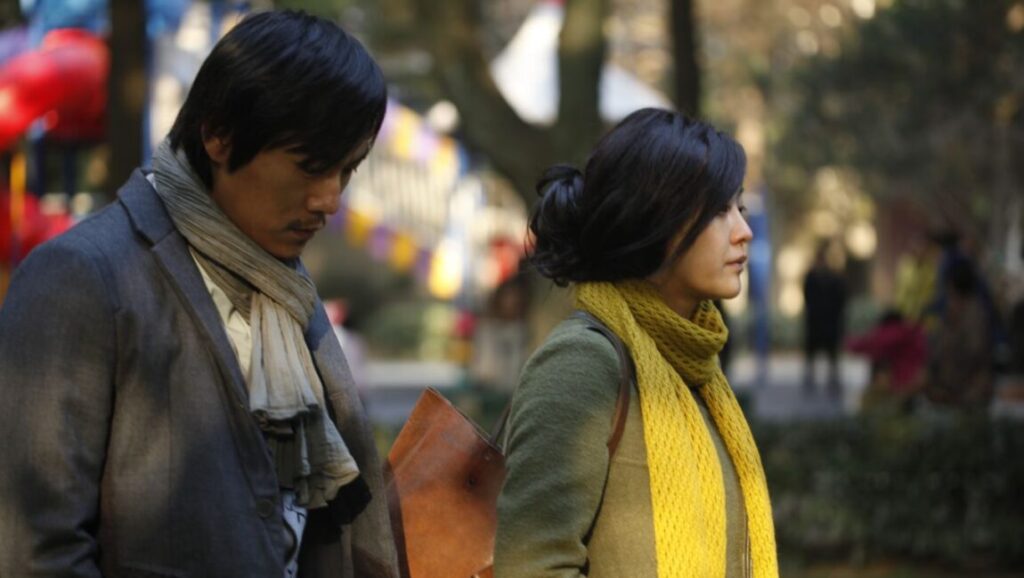Despite Lou Ye’s reputation for pushing the boundaries of Chinese censorship guidelines – due to his often frank and incisive takes on politics, gender, and sexuality – Mystery proves a confoundingly tame affair. It opens with the antics of privileged, hedonistic youths racing cars on rain-slicked roads, one of which violently careens into an already blood-covered woman who stumbles into their path. (As proof of the film’s lack of nuance, the unremorseful driver kicks the dying woman multiple times as she reaches out for help.) From here, the plot whorls out to encompass the lives of caregiver-mother Lu Jie (Hao Lei), her adulterous husband Qiao Yongzhao (Qin Hao), and a new, mercurial friend (Qi Xi; resolving their relation to each other, and to the accident, becomes the film’s principle focus. Structured as a typical procedural, Lou seeks to buttress his twisty but trifling narrative with an emotional intimacy that will be familiar to his initiates. But employing his elsewhere-successful visual flourishes to this end – varying degrees of close-up capturing faces in emotional flux are paired with the recognizably jittery, handheld camerawork – here, instead work only to define a melodramatic affect; the characters and machinations are too heightened and broadly-sketched to create any genuine emotional heft.
But the film’s density of plot and mood means that little here has room to breathe; instead of patiently allowing the material to elongate and deepen, Lou is content to let his film operate as a furious burst of luridness.
It isn’t hard to see why this source material, based on a series of posts from the Chinese forum Tianya Club, appeals to Lou: the impermanence and violence of love, the emotional impositions of fixation, and a disillusionment with systemic structures are all favored motifs in his work. The problem, then, is these thematic concerns, along with any meaningful considerations of class morality or blasé corruption in contemporary Chinese society, are undone by the narrative contrivances that saturate the film. Mystery habitually returns in time to the action preceding the accident, calculatedly shifting suspicion and doling out previously withheld information in a bid for maximum titillation. But the film’s density of plot and mood means that little here has room to breathe; instead of patiently allowing the material to elongate and deepen, Lou is content to let his film operate as a furious burst of luridness. The film’s digital photography is dominated by gloomy grays, while its action is comprised mainly of manipulative maneuvers carried out by characters either too awful or too opaque to elicit much more than indifference. This whiplash approach to story lends the film a misguided pulpy sheen; Lou’s usual delicacy and knotty cynicism are frustrated by a slipshod handling of genre trappings. Instead of exploring the tragedy of love, Mystery traffics in its squalor.
Part of Lou Ye: Every Face Is a Mask.


Comments are closed.